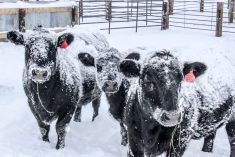Rule changes passed in a federal bill to standardize tax treatment for sales of family-owned farms and small businesses will be delayed to the start of 2022, to the dismay of several farm groups.
Bill C-208, a private member’s bill spearheaded by western Manitoba Conservative MP Larry Maguire with amendments to the federal Income Tax Act, cleared the House of Commons in mid-May and Senate in late June. On June 29, it got royal assent.
However, the federal finance department on June 30 pointed out that C-208 as passed “does not include an application date.”
Read Also

ICE Weekly: Trade talks, weather lifting canola prices
Trade discussions between Canada and the United States as well as dry weather have driven canola’s rally on the Intercontinental Exchange during the week ended July 2, 2025.
The Liberal-led government said June 30 it’s “committed to facilitating genuine intergenerational share transfers, while preventing tax avoidance that undermines the equity of Canada’s tax system.”
Thus, the government said, it proposes to introduce separate legislation to “clarify” that C-208’s amendments apply at the beginning of the next tax year, starting Jan. 1, 2022.
C-208’s tax law amendments are meant to exclude the sales of farms and other small businesses to adult children or grandchildren from current anti-avoidance rules.
Under pre-C-208 tax law, Maguire said in May, “when a person sells their small business or farm to a family member, the difference between the sale price and the original purchase price is considered a dividend.”
But if the business instead goes to a non-family member, the sale is deemed a capital gain, which is taxed at a lower rate and allows sellers to use their lifetime capital gains exemption, he said.
During debate on C-208 last fall, the Liberals cautioned that Maguire’s bill, as Ontario MP Tony Van Bynen put it, “seeks to amend two of the Income Tax Act’s most important and complex anti-avoidance rules.”
Those rules, he said, are meant to apply when an individual sells shares of a corporation to another corporation that is linked to the same individual — for example, through a family member.
When shares of a Canadian corporation are sold to such a “linked” corporation, the pre-C-208 rules deem that in certain circumstances, the seller has received a taxable dividend from the linked corporation, rather than a capital gain.
The rule, he said, is meant to ensure taxpayers “cannot use linked corporations to, in effect, remove earnings from their corporations, using a sale as a basis to do so.”
But the Conservatives at the time noted C-208 requires that a family member buying such shares of a farm or small business must not sell them for at least 60 months for any reason, other than “by reason of death.”
To curb tax evasion, they said, C-208’s provisions would not apply to such a buyer who sells before that five-year period ends.
‘Intentions clear’
The Canadian Federation of Agriculture, in a separate statement Friday, took the finance department’s June 30 announcement to mean the government “will likely be making amendments in order to close potential tax loopholes.”
The CFA said its “primary concern” is that C-208’s changes to the treatment of intergenerational farm transfers “must be made clearly accessible as quickly as possible, as Parliament made its intentions clear through the passage of the bill.”
“In our talks with the accounting community, this delay, and the uncertainty around exactly what the amendments will be, will force many farmers who were looking to transfer their farm to a family member to delay their retirement plans until 2022,” CFA president Mary Robinson said Friday.
“If they transfer to a family member under the current rules, it can potentially cost them hundreds of thousands of dollars more in taxes compared to if this bill was fulfilled.”
C-208, Robinson said, would help “preserve the identity and financial stability of the Canadian family farm.”
The Western Canadian Wheat Growers, meanwhile, said they were “dismayed” to hear of the delay. “Canadians need to understand that this current government is not looking out for the best interest of Canadian family farms,” president Gunter Jochum said Monday in a release.
Federal Conservative leader Erin O’Toole also criticized the Trudeau government in a separate statement Friday for “refusing to implement a tax reduction for small business that was passed in Parliament.” –– Glacier FarmMedia Network




















